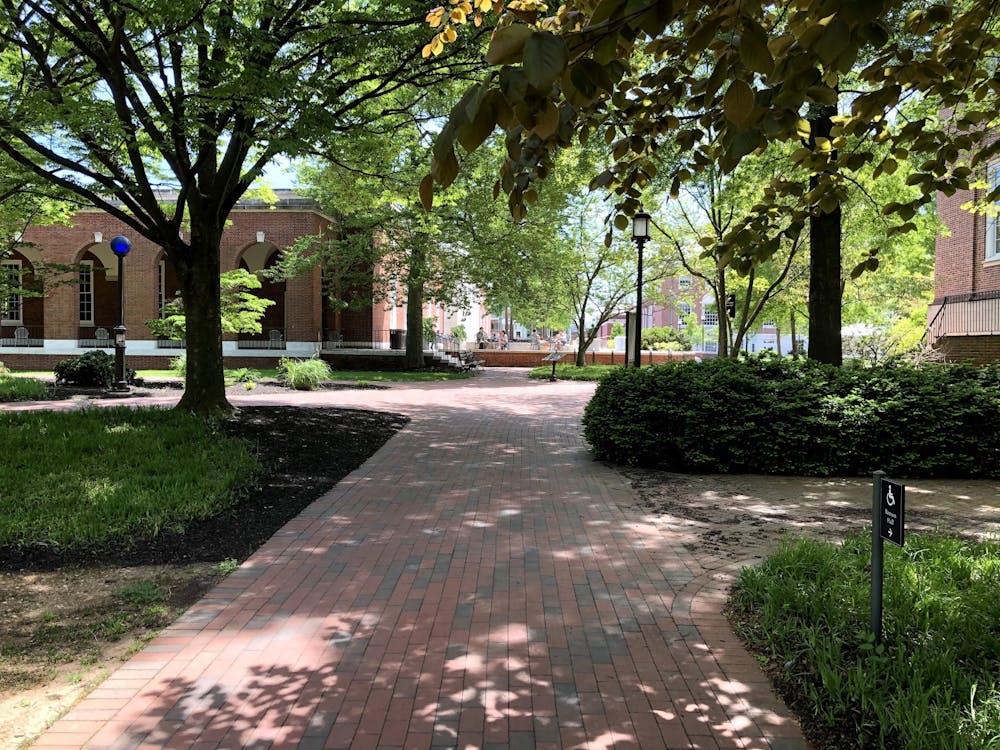The University announced that it will adopt a $15 minimum wage, effective July 1, 2021 for the University and January 1, 2022 for the Hopkins Health System, with the timing for some health system workers dependent on the schedule of collective bargaining agreements, in an email to Hopkins affiliates on May 6.
This is ahead of the state of Maryland, which will not increase its state-wide minimum wage to $15 until January 1, 2025.
The University claimed that within Maryland, the wage increase will impact at least 6,000 employees, such as casual and temporary workers, hourly student workers and the rest of full-time, on-campus contract workers. Security personnel and contract food workers already receive a $15 hourly wage.
In an email to The News-Letter, Assistant Vice President of External Relations Karen Lancaster explained that the University sought to improve the welfare of its employees.
“We take very seriously our responsibility to serve as an engine of opportunity in Baltimore and every community we serve, and paying higher wages to employees supports both them and the local communities in which we live and work,” Lancaster wrote.
Lancaster noted that in Fiscal Year 2020, 2,293 undergraduate and 536 graduate students were being paid below $15 an hour. She added that students and casual workers had been paid the Maryland minimum wage of $11.75 and part-time and full-time employees were compensated $13 an hour.
The News-Letter reached out to health-care union 1199SEIU United Healthcare Workers East and was directed to a statement in The Baltimore Sun made by Lisa Brown, executive vice president of the Maryland/D.C. region of 1199SEIU.
“This [minimum wage increase] will move them [SEIU members at Hopkins Hospital] ahead faster, and for those who are over [$15 an hour], it sets a floor that’s more reasonable to fight from,” Brown said. “Once you start raising the floor, you have to start raising the ceiling.”
Junior Adelle Thompson, who last worked for the school in fall 2019, believes that the wage increase benefitted student workers who work to support themselves.
“It’s going to take a lot less time for students to make the same amount of money,” Thompson said. “In the past, you had to work so many hours to make anything close to something that could sustain you if you live off-campus or buy your own food.”
Junior Honor Zetzer partially agreed noted that she did appreciate the wage increase in improving wealth equity.
“I'm glad to feel that the wealth in this institution is being spread more evenly towards all its stakeholders, including the lowest paid employees,” Zetzer said.
However, Zetzer remained skeptical about the University’s commitment to workers. She drew attention to the University’s repudiation of its pledge to financially support laid-off food workers last year.
“An increase in wages doesn't necessarily make up for the institution’s tendency to neglect other aspects of worker's dignity and value,” Zetzer said. “We saw only a year ago the University back out of promises to the dining staff that might have helped those dining workers during the pandemic, and it wasn't until after significant struggle on the workers’ end that [the University] reentered parts of that agreement.”
Zetzer mentioned that maintenance workers at the School of Medicine are fighting to keep their jobs.
“There is still a massive discrepancy in the distribution of wealth in this University, and workers at the lowest end are still treated as dispensable,” Zetzer said.
Conor Bean, a member of the organizing committee of the independent graduate student union Teachers and Researchers United (TRU), argued that a $15 minimum wage is no longer enough to support individuals or those with dependent families.
He also expressed frustration that graduate students will, for the most part, be ineligible for the wage increase.
“It doesn’t affect grad students because we’re not recognized as workers,” Bean said. “This is a long-standing issue TRU has been fighting for: getting graduate students recognized as workers.”
He stated that TRU will continue to work to get this recognition so that graduate students are not left out of similar developments.
Bean viewed the wage increase as insufficient in creating a more equitable institution and as a press ploy by the University in response to backlash to its recently retired austerity measures.
“There is a lot more that has to be done to make Hopkins a more equitable place,” Bean said. “I don’t think this cuts it; if anything, this is a way to avoid bad press because of [the University’s] ill-advised and, quite frankly, dishonest austerity measures.”
Laura Wadsten contributed reporting to this article.





